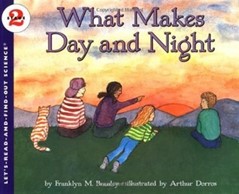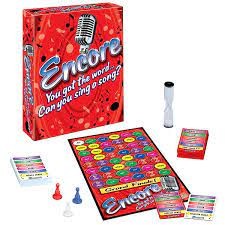
Hello Book Bums families!
Has your month been flying by? Do you ever wish to turn back the hands of time? Maybe you feel like you're trying to beat the clock. Do you agree that the days are slow, but the years are fast? It's high time we told you that this week's newsletter is all about time! We're sharing practical ideas for telling time, books and videos to help you and your kids learn more, and fun family games. Don't wait until eleventh hour to read and enjoy.
Bookbums.com is an Amazon Associate; We earn from qualifying purchases. This means that if you click on a link to Amazon.com and make a purchase, We may earn a small commission at no extra cost to you. We do recommend the products. Feel free to find them by other means.
Word of the Week
standardize (stan-der-diz) verb/action word - to assure consistency and regularity
The first dictionaries were an effort to standardize word spelling and make communication easier.
Literary Calendar
• March 15 is the ides of March.
• You may know that phrase from Shakespeare's Julius Caesar, where Caesar is famously warned to "Beware the ides of March!"
• The ides of a month come from the ancient Roman calendar and correspond to the first full moon, so it's not the 15th in every month.
From our Bookshelves

What Makes Day and Night, by Franklyn M. Branley, is a great book for kids to learn about this magnificent planet of ours, and it just might help you to explain the upcoming time change too.
Remember, on the second Sunday in March, March 12th, most of the United States and many other countries advance their clocks one hour at 2:00 a.m. so that darkness will fall a little later. This 114-year-old practice is called Daylight Saving Time (DST). Note that it’s not called Daylight Savings Time. On the first Sunday in November, at 2 a.m., clocks will be moved back one hour to standard time. To help us recall the impact of Daylight Saving Time, many of us say, “We spring forward in the spring and we fall back in the fall.”
It’s difficult to imagine today, but until train travel was common there was no standardized time. It was the U.S. railroad industry that established time zones and standard times way back in 1883 to prevent trains from crashing due to inconsistent time keeping. Congress made the system a law in 1918. For reference, consider that Ohio became a state in 1803. (FYI—On March 1st, our state celebrated its 220th birthday.)
To save fuel during World War I, Germany implemented Daylight Saving Time. The US adopted the practice too, but its use wasn’t standardized across the country until the Uniform Time Act gave the federal government its oversight in 1966.
When updating legislation in the 1980s, Congress noted that DST has many benefits, including "more daylight outdoor playtime for the children and youth of our Nation,” however there are many today who actively fight against DST. Some say negative ramifications such as interrupted sleep cycles (that can lead to an increased number of auto accidents) outweigh the benefits.
Many believe that Daylight Saving Time was Ben Franklin’s idea, however, Franklin suggested that folks wake up earlier if they wanted to save money on lamp oil and candles and to maximize the daylight hours. He did not advocate for the changing of the time.
Tips for Families
Tips for Families
Maximizing time is a common desire. Here are ten tips to help you maximize the time you have with your family:
1. For smooth-running mornings, get things ready the night before.
2. Plan ahead for meals, and batch your cooking and/or cook double what you’re cooking for later use.
3. Autopay your bills. Keep good records so updating credit card information is quick and painless.
4. Shop online. When you do shop in person, make a list of upcoming events (birthdays, showers, holidays, etc.,) that you can shop for while you’re out.
5. Keep things tidy. Total overhauls are much more difficult than daily maintenance.
6. Do laundry as soon as you have a load. Doing one load every day or so is more manageable than tackling a looming mountain of dirty clothes.
7. Delete notifications on your devices (or at least limit them) so you don’t get distracted.
8. Batch and stack tasks. Take care of necessary tasks while doing other things you enjoy. Try folding clothes while watching a show you like and cleaning out the car while listening to your favorite jams.
9. Organize for events that are on your radar. Place items in designated spaces so you can easily see what you have and remember what you need.
10. Add to your career capital while driving, walking, etc., by listening to podcasts that promote your professional knowledge.
BONUS TIP-
Successfully managing time requires the provision of adequate downtime too, so create space in your schedule for rejuvenation.
There are some myths about maximizing time that you’ll want to keep in mind.
Myth 1: Schedule Your Hardest Tasks First. Everyone’s different. We should do the hardest things when we have the most energy for them. Sometimes taking care of easy things gets us “on a roll” that makes the hard things feel more manageable.
Myth 2: You should make a to-do-list. Simply adding items to our calendars might be sufficient. Making a list just so we can check things off may not be the best use of our time.
Myth 3: You get more done by multi-tasking. Not true. Today we know that being mindful as we’re completing tasks yields greater benefits.
Tips for Readers and Writers
Help your kids recognize what’s happening with our planet that creates day and night. In addition to the book we’re recommending above, you may want to check out the following video. Your kids can learn about how our planet spins on its axis as it revolves around the sun. You can grab a small apple, insert a skewer, and use a nearby lamp to demonstrate Earth’s axis, how it spins, and how the sun’s light only shows on part of Earth at any given time. Draw a star to show where we are on the makeshift planet.
Do not assume your kids are not interested. It’s our job to expand our kids’ interests! The more they know about the world around them, the more skilled readers they will be.
Tips for Teaching Readers and Writers
Too many kids, today, cannot read an analog clock. Please take some time to equip your kids to tell time. A requisite skill for telling time is skip counting by fives. If your kids cannot do that, you’ll want to begin practicing skip counting by fives before addressing the clock.
Here’s an easy way to teach your kids to tell time:
First, notice the long, skinny second hand. Share how it works. Share that each time the second hand goes around the clock (clockwise), it represents one minute. There are sixty seconds in one minute and sixty minutes in one hour, but we do not use the second hand, typically, when we’re telling time. It’s fun to have kids guess how long a minute is. Mark the time by saying, “Go!” and have the kids tell you when they think a minute has passed.
Next, notice the shortest hand. That’s the hour hand. We can remember which is the hour hand because the word hour is short—only four letters. When telling time, we look to the short hour hand first. The hour, the first number we say when we’re telling time, is the number the short hand is touching or was just recently touching. Until the hour hand is pointing directly to the mark for the next number, we say the name of the number it was on, before. Have your kids practice naming the hour as they look at analog clocks. Click this link for a practice page for you to use.
Now, let’s notice the longer hand: the minute hand. Remember, the word minute is longer than the word hour, and the minute hand is longer than the hour hand. When the minute hand is pointing straight up and touching the twelve, we name the hour and then the words o’clock. From there, we know that each tiny hash mark around the outside of the clock represents one minute. We could count each hash mark, one by one, to determine how many minutes after the hour it is, but that’d take a long time. So, we skip count by fives, recognizing that the one on the clock face is on the fifth hash mark. Have your kids touch each number, starting with the one, and count by fives. If the minute hand isn’t directly pointing to the number, simply add on the needed number of minutes.
That’s it! You can have your kids practice telling time, and when they’ve got it, reward them with a brand new analog watch!

Did you know that the hands on clocks and watches that are for sale are often set to 10:10 because the hands mimic the shape of a smile, and this “smile” has been shown to elicit more positive responses than other clock images? The kicker is that even in advertisements for digital clocks, the clocks are set to 10:10!
Pause for Poetry
To the Virgins to Make Much of Time
By Robert Herrick
Gather ye rose-buds while ye may,
Old Time is still a-flying;
And this same flower that smiles today
Tomorrow will be dying.
The glorious lamp of heaven, the sun,
The higher he’s a-getting,
The sooner will his race be run,
And nearer he’s to setting.
That age is best which is the first,
When youth and blood are warmer;
But being spent, the worse, and worst
Times still succeed the former.
Then be not coy, but use your time,
And while ye may, go marry;
For having lost but once your prime,
You may forever tarry.
*This poem was famously featured in the movie Dead Poets' Society with Robin Williams as he encouraged his students to seize the day.
Practical Grammar
illicit vs elicit
Illicit and elicit are homophones. Without really enunciating, these words can sound the same, but they have entirely different meanings.
Illicit is an adjective (describing word) meaning forbidden by law, rules, or custom.
Elicit is a verb (action word) that means to draw out (a response) from someone. It’s often a reaction to an action or a question.
Many folks do not like Daylight Saving Time, and they are trying to elicit support for its elimination.
The employees were found to have committed illicit acts and should therefore have no place in the company.
Just for Fun

My family used to play the game, Encore, where two teams compete to come up with songs containing particular words in their lyrics. For a song to count as a point for his or her team, someone had to be able to sing at least five lyrics from the
If you know someone who would benefit from our newsletter or tutoring at Book Bums, please share this email with them! Thank you.
Copyright © 2024 Book Bums, All rights reserved
Our mailing address is:
7967 Cincinnati-Dayton Road Suite L
West Chester, OH 45069

